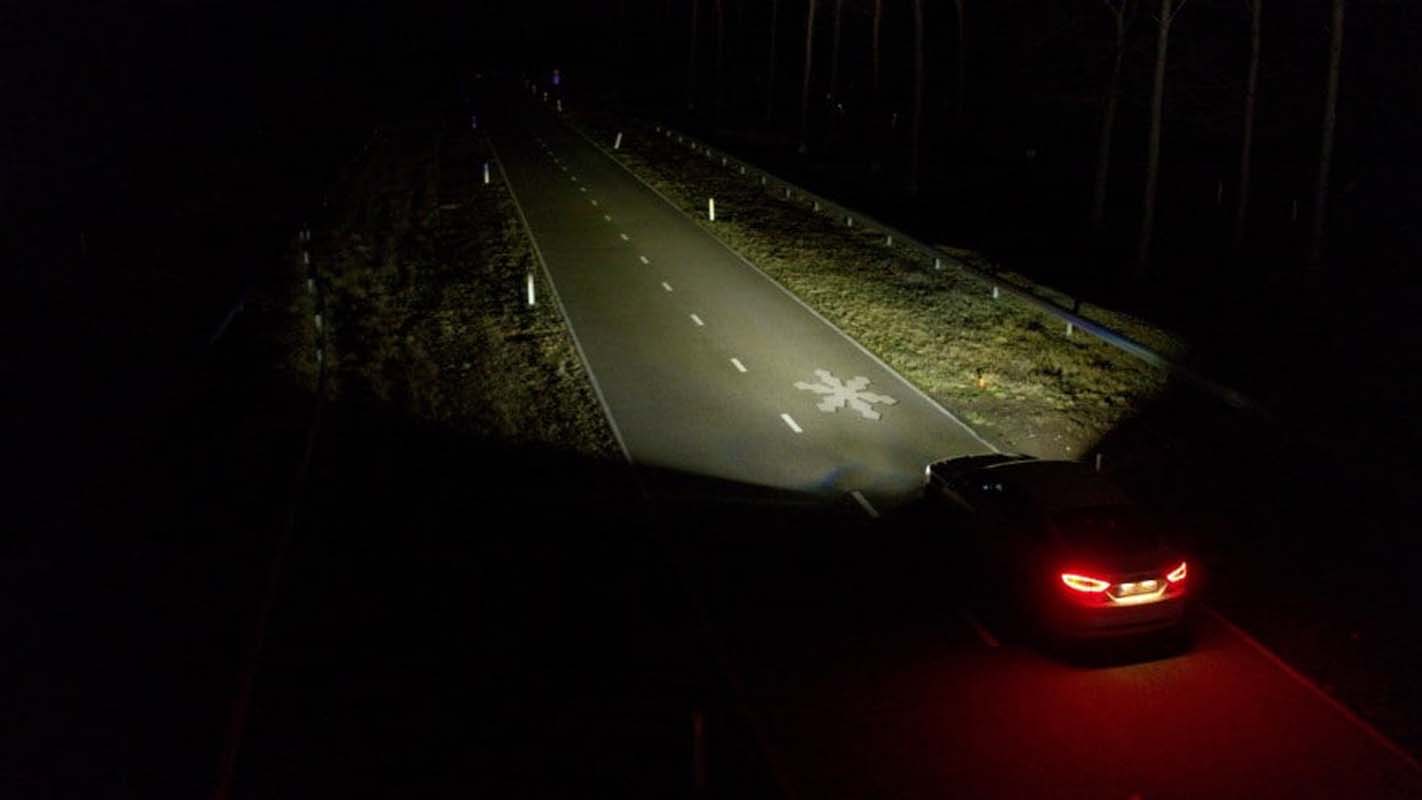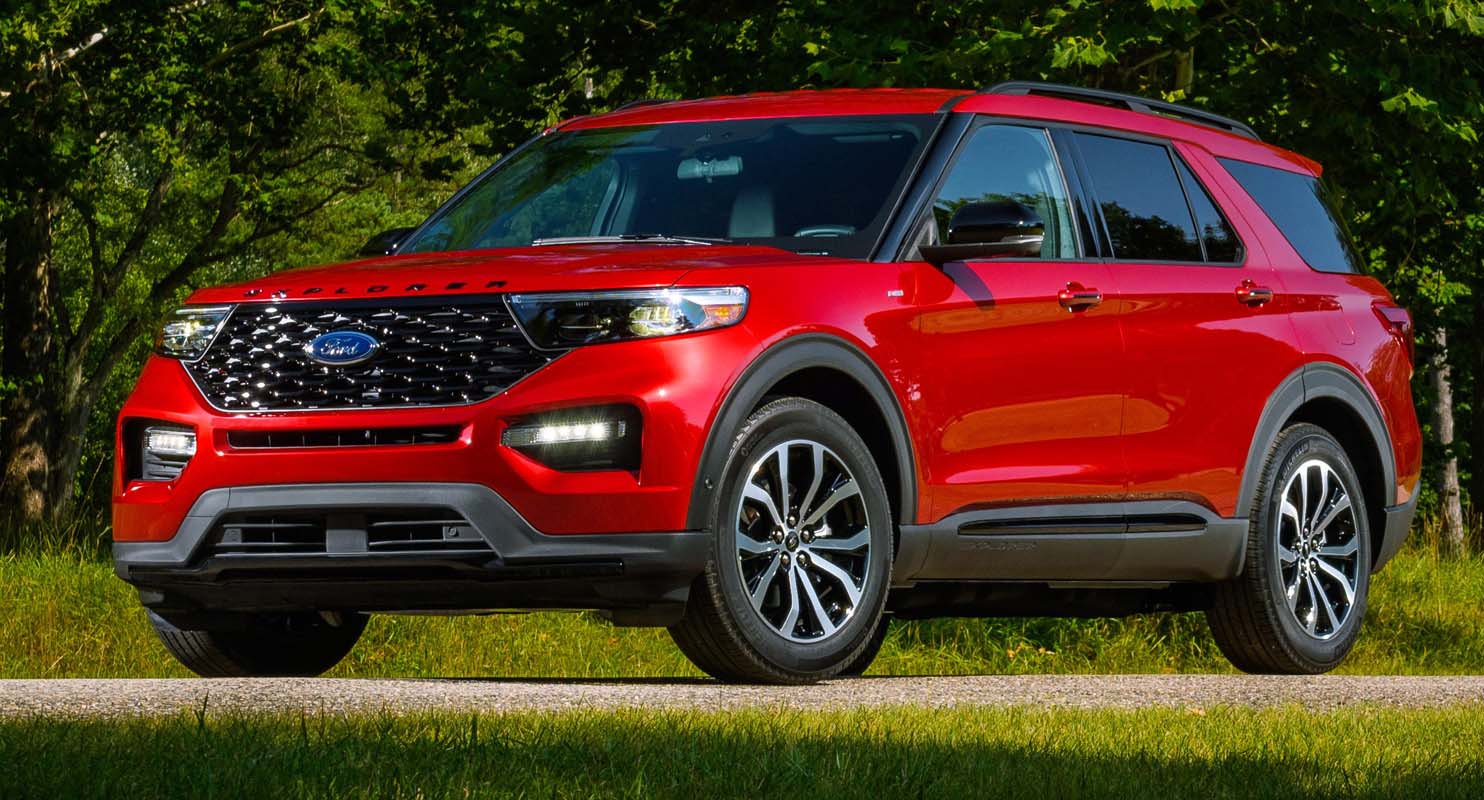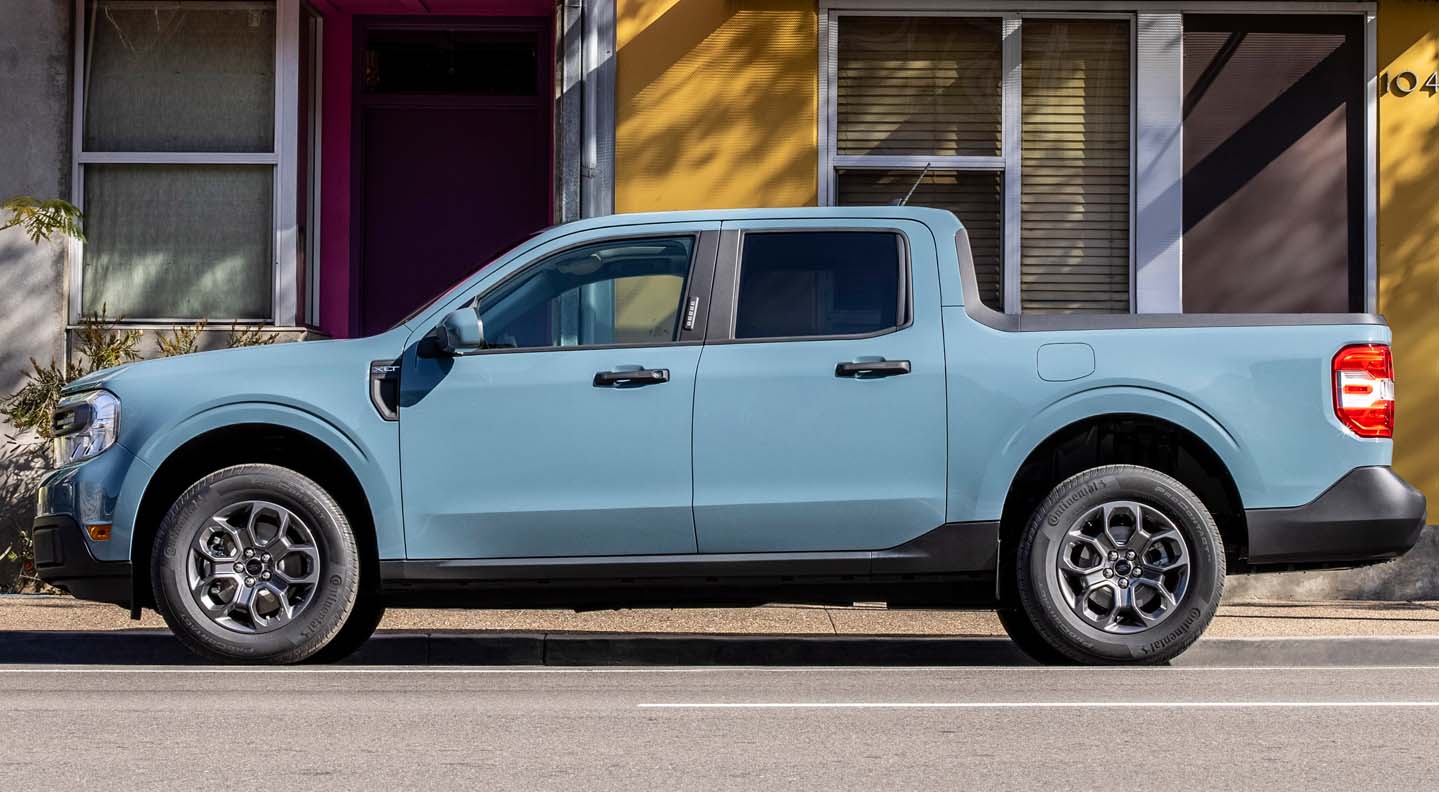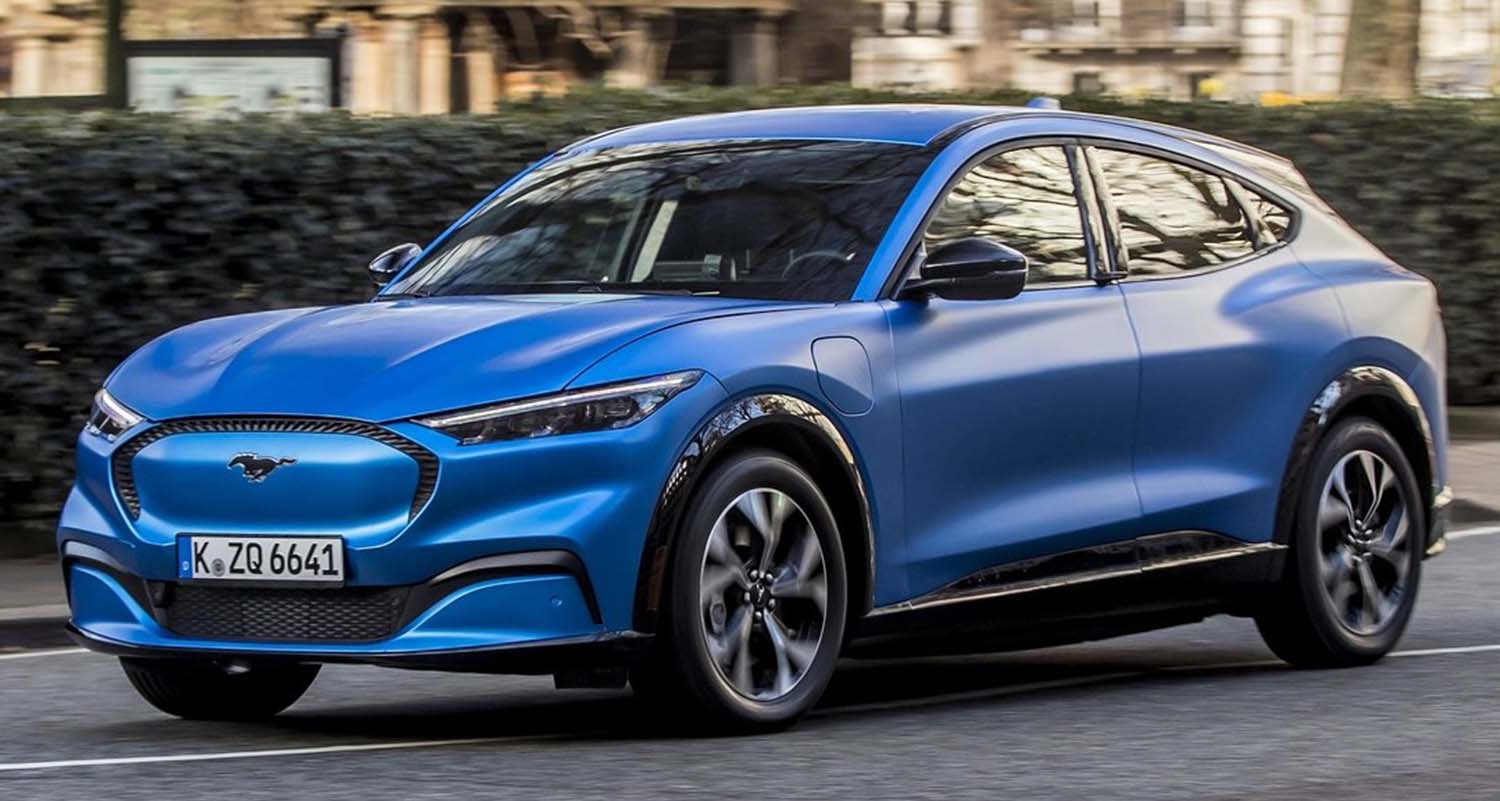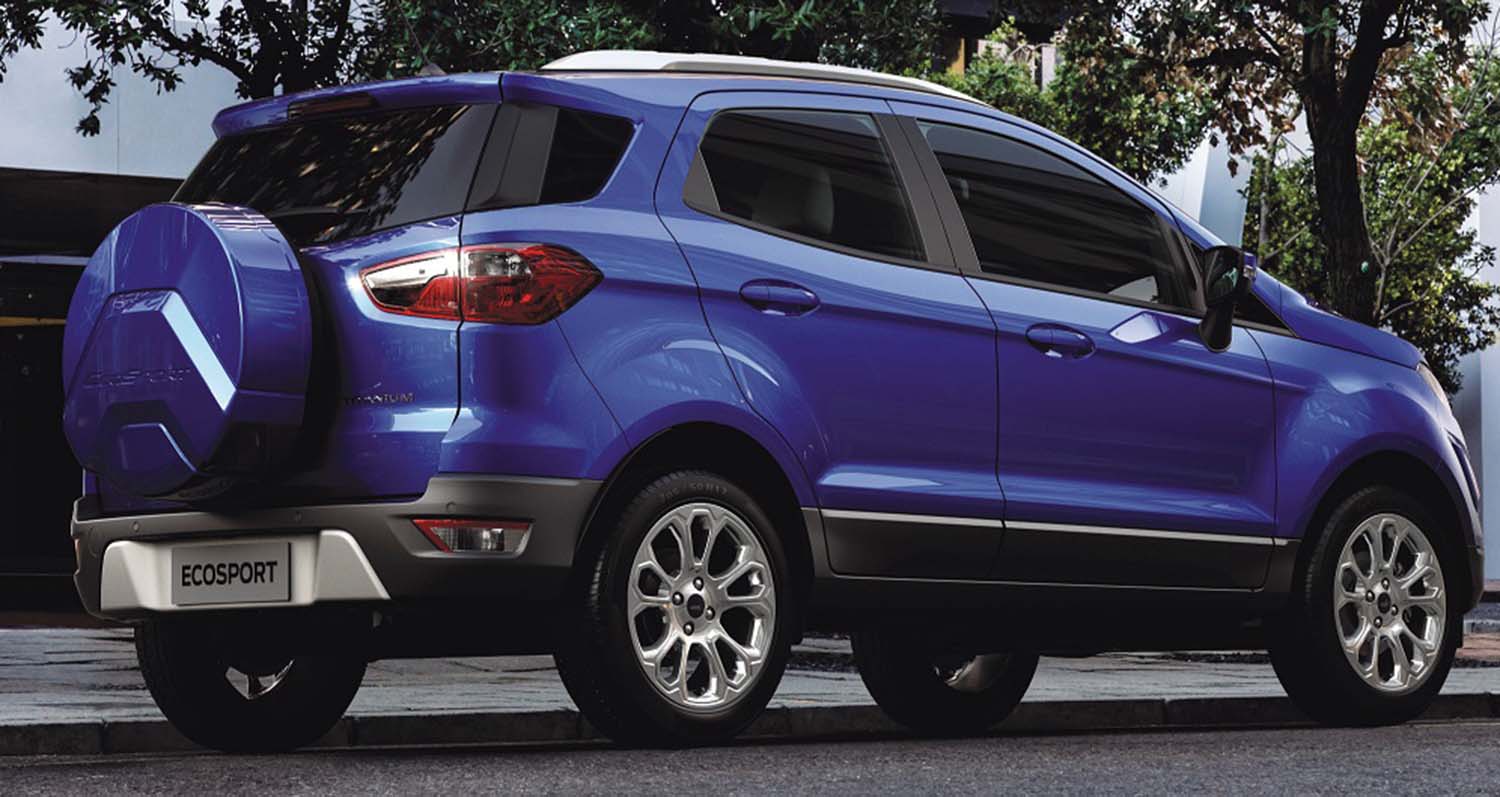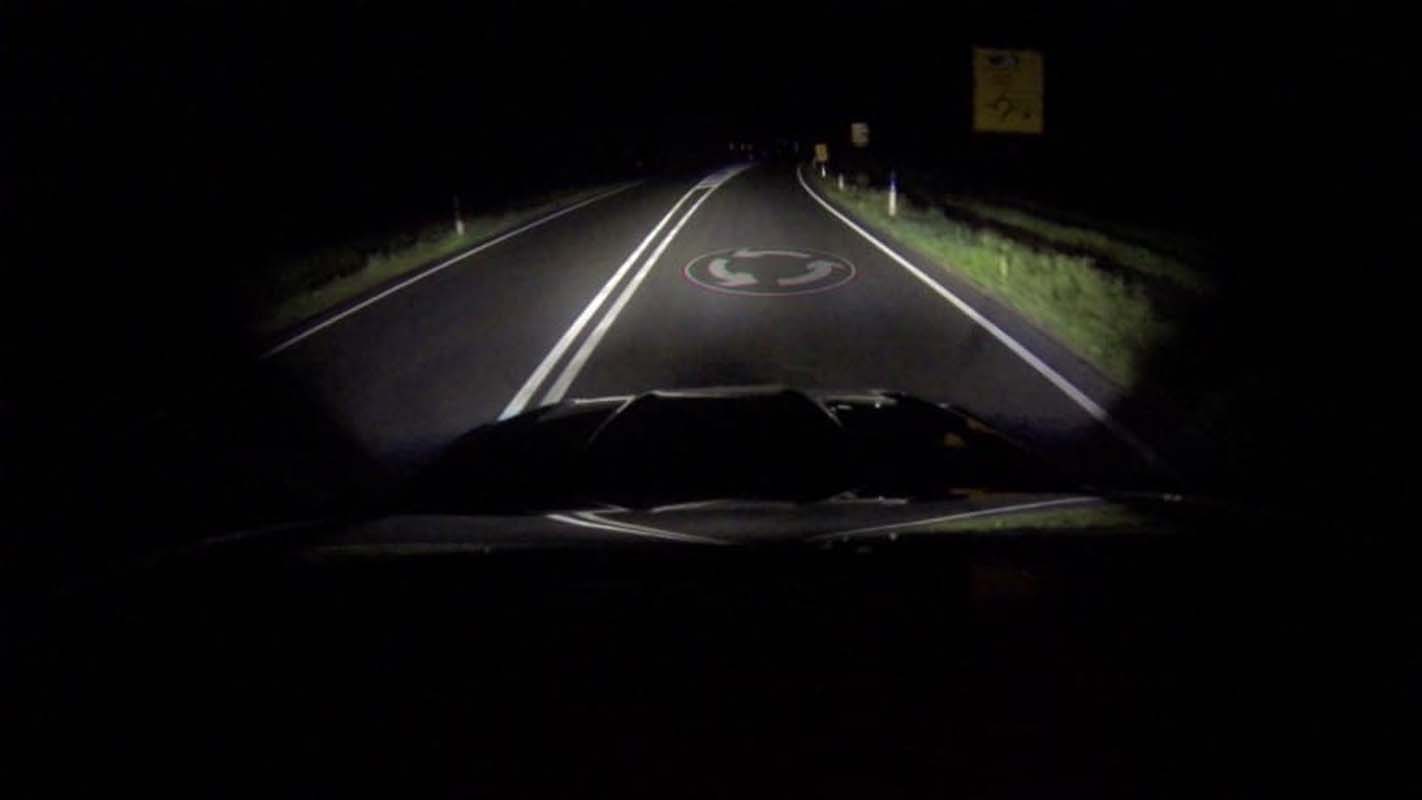
Head-up displays have for some time enabled drivers to stay focussed on the way ahead. But now Ford engineers are trialling new headlight technology that could help ensure those behind the wheel literally keep their eyes on the road.
The new technology can project directions, speed limits or weather information onto the road so the driver’s gaze can remain fixed on the way ahead.
Night-time can be riskier for driving. For example, in the UK, 40 per cent of collisions happen in darkness, even though there are far fewer people driving than in the daytime. This risk is increased whenever a driver takes their eyes off the road. A vehicle travelling at 90 km/h covers 25 metres per second, meaning even a short glance at the navigation on the in-car screen can result in “driving blind” for ten metres or more. On an unlit road, this could potentially mean missing an important sign or a bend in the road.
Projecting information onto the road using high-resolution headlights could benefit other road users too. For example, a crosswalk could be projected onto the road, both for the view of the driver and the pedestrian, in situations where the existing road markings are faded or unclear. Other possibilities include showing a path for the driver to follow to ensure cyclists are passed at a safe distance.
The technology could provide the driver with information about changes in weather, such as snow falling, fog, slippery conditions, or an icy road ahead. Connecting the headlight to the navigation system could display upcoming turns, while the width of the vehicle could be projected onto the road, helping the the driver to judge whether the vehicle will fit through a gap or into a parking space.
Endeavouring to make night-driving more comfortable is part of Ford’s commitment to developing technologies that serve and inspire the way people live and work, to make life easier, now and in the future.
Quotes
“What started as playing around with a projector light and a blank wall could take lighting technologies to a whole new level. There’s the potential now to do so much more than simply illuminate the road ahead, to help reduce the stress involved in driving at night. The driver could get essential information without ever needing to take their eyes off the road.”
